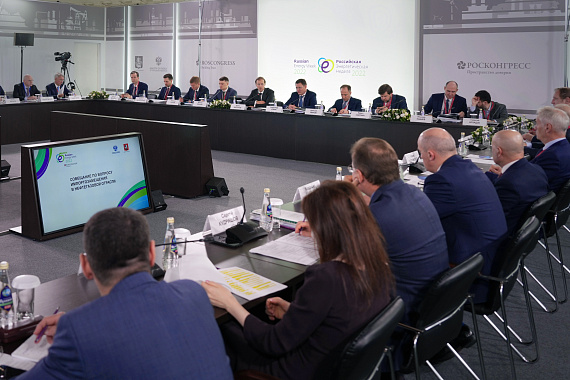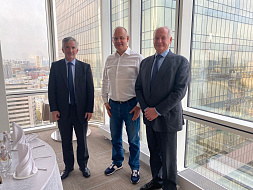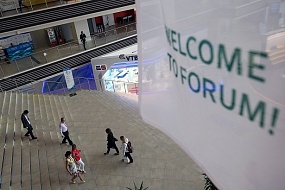Authorities and fuel and energy companies developed joint approaches to import substitution during Russian Energy Week

On 14 October, on the venues of Russian Energy Week, a meeting on import substitution was held. It was chaired by Deputy Prime Ministers Alexander Novak and Denis Manturov with the participation of major oil and gas companies and Russian equipment manufacturers.
The participants talked about achievements in import substitution since 2014 and set urgent tasks to increase the localization of production of necessary equipment and components in Russia against the backdrop of tougher sanctions.
“Following the expansion of sanctions in 2022, it is important for us to provide the fuel and energy complex with Russian equipment and technology as far as energy security is concerned. A working group has now been set up at the level of the Ministry of Energy and the Ministry of Industry and Trade with the participation of major Russian oil and gas companies. A lot of work to analyse the demand for equipment, which now can’t be imported from abroad, has been done. So far, Russia has substituted 60% of foreign equipment for the fuel and energy complex, but the President has set the goal of reaching 80% by 2025. To meet this target, we need a unified regulatory framework and updating of Russian standards on the same platform,” said Deputy Prime Minister Alexander Novak, opening the meeting.
The transition to Russian standardization and certification systems will accelerate the introduction of Russian equipment and reduce both time and material costs for Russian producers to undergo pre-qualification procedures with oil and gas and petrochemical companies. Previously, large oil and gas projects in the Russian Federation implemented by foreign licensors and contractors necessitated the use of foreign standards.
Today, it is proposed to use the platform of the Institute of Oil and Gas Technology Initiatives (INTI), which is already in practice implementing the development and introduction of new standards, forming a unified system of conformity assessment of products, and helping producers conduct pilot tests. Based on the results of audits and tests, the institute forms a database of verified product suppliers to be used in the oil and gas companies procurement activities. The INTI was established in 2020, and today it already unites 20 oil and gas companies, including seven foreign ones.
“To date, more than 80 unified standards for oil and gas equipment have been developed and approved, and a mechanism for joint pilot tests has been successfully tested. We believe that the involvement of new participants of the Russian oil and gas market in the Institute’s activities will help achieve the goals set by the President of the Russian Federation,” said Denis Manturov, Deputy Prime Minister, Minister of Industry and Trade of the Russian Federation.
Among the measures to support domestic producers of equipment and technology, he named shortening the payment deadlines for work done in Russian companies, increasing the share of advance payments for pilot projects to 50% of the cost, preferential loans, and state grants.
Representatives of Gazprom, Gazprom Neft, INTI, ROSATOM, Transneft, design bureaus and factories, and contractors of major companies spoke at the meeting.
At the end of the meeting, the deputy prime ministers proposed that the following tasks be included in the minutes of the meeting:
- Regulate a mechanism for collecting information on Russian companies’ demand for domestic equipment and components.
- Instruct all vertically integrated oil and gas companies to become founding members of the INTI, as instructed by the Russian President, and to share their own equipment expertise used within the companies. This should result in the unification of the corporate standards that were developed by each company independently, which will make it possible to consolidate orders. For manufacturers, this will make it possible to have a single certification with all customers.
- Conclude agreements on all key oil and gas technologies with Russian technology producers. Based on the results, create a roadmap with timelines for their implementation.
- Work out a proposal to introduce compulsory certification of foreign equipment in Russia.





